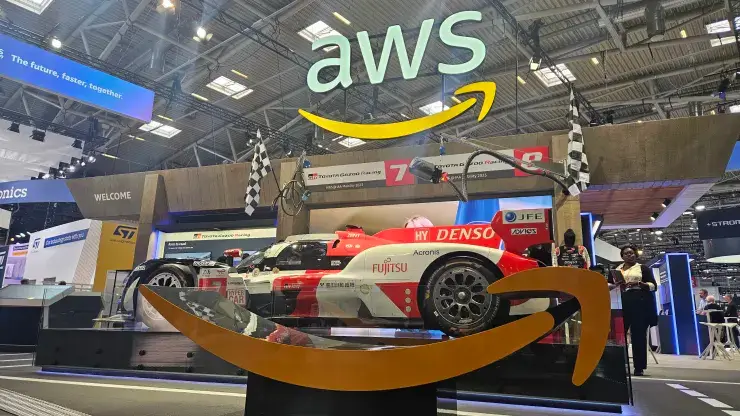The IAA, one of the world’s premier motor shows, might seem more like a technology conference these days. Tech giants like Amazon, Qualcomm, and Samsung have made their presence felt at this year’s event, underscoring the growing demand for traditional automakers to enhance the technology in their vehicles. This push extends from software to hardware, as these automakers strive to catch up with Tesla in the electric car revolution. Additionally, bolstering technology features is crucial to meeting the evolving expectations of buyers, especially in markets like China.
Mohit Sharma, an automotive research analyst at CCS Insight, explained, “Tesla and the Chinese start-ups. This is the two-way force they [traditional automakers] are experiencing, driving them to have more user experience in the car.”
However, automakers are not going at it alone. They are increasingly turning to tech companies for assistance while also developing software in-house. Tesla’s global success can be attributed, in part, to its technological prowess across various aspects, from cutting-edge batteries to Autopilot, its advanced driver assistance system (ADAS) with semi-autonomous driving features. Tesla’s in-car display is also reminiscent of a smartphone interface, and it’s these features that rival automakers are striving to emulate and surpass.
In the smartphone arena, there are two major operating systems: Google’s Android and Apple’s iOS. In contrast, the automotive world lacks a similar standardization when it comes to infotainment systems and in-car screens. Now, auto companies are placing a significant emphasis on developing their own operating systems to make using car screens more akin to interacting with smartphone apps.
Mercedes-Benz recently unveiled further details about its self-developed operating system called MB.OS at the IAA. This system will power various features, including the expansive dashboard screen and voice assistant in its upcoming electric vehicles. Swedish electric vehicle manufacturer Polestar, in collaboration with Xingji Meizu (a smartphone maker owned by Chinese auto giant Geely), is set to launch its own smartphone in conjunction with the Polestar 4 car’s delivery in December. Meizu is developing an operating system for Polestar vehicles based on its own product, FlyMe, ensuring a seamless user experience between the smartphone and the car’s operating system.
U.S. chipmaker Qualcomm also made its presence felt at the IAA, signaling a significant foray into the automotive sector. Qualcomm’s chips are poised to power artificial intelligence applications within vehicles. One example showcased was a car assistant capable of finding a recipe for chicken enchiladas and adding the ingredients to a shopping list. It’s not just about the screen; automakers are also exploring ways to utilize various parts of the car to display information. BMW, for instance, introduced the “Panoramic Vision” heads-up display in its Neue Klasse electric vehicles, projecting information onto the windshield at the driver’s eye level.
Ensuring a comfortable ride is also on automakers’ agendas. U.S. electric vehicle manufacturer Lucid showcased the massage feature in the seats of its Air Midnight Dream Edition car.
One of Tesla’s standout technological achievements has been its Autopilot ADAS. While no car can operate autonomously from a legal standpoint, automakers are ramping up their efforts in developing driverless features and capabilities. Tesla leads the pack in ADAS features, closely followed by young Chinese players like Xpeng and Nio. Traditional automakers are now striving to catch up in this area, with BMW announcing that its Neue Klasse cars will feature the next generation of its ADAS, developed using Amazon’s cloud technology and Qualcomm’s chips.
Many automakers aspire to become major players in the world’s largest and highly competitive electric vehicle market, China. In their quest to stand out from rivals, Chinese firms have been highlighting the tech features of their vehicles, ranging from software to ADAS capabilities. Chinese customers have come to expect the latest tech perks.
Polestar CEO Thomas Ingenlath emphasized the importance of offering unique software features in China, stating, “It’s not just good enough to bring a great European design to China; you have to be very, very special about what you offer to the market when it comes to software.”
Taking heed of this sentiment, foreign companies such as BMW and Mercedes are making substantial investments in tech development as they aim to boost electric vehicle sales in China. Volkswagen CEO Oliver Blume, for instance, revealed plans to increase the number of software engineers in China, emphasizing the need for “China speed” in their operations at the IAA conference.





